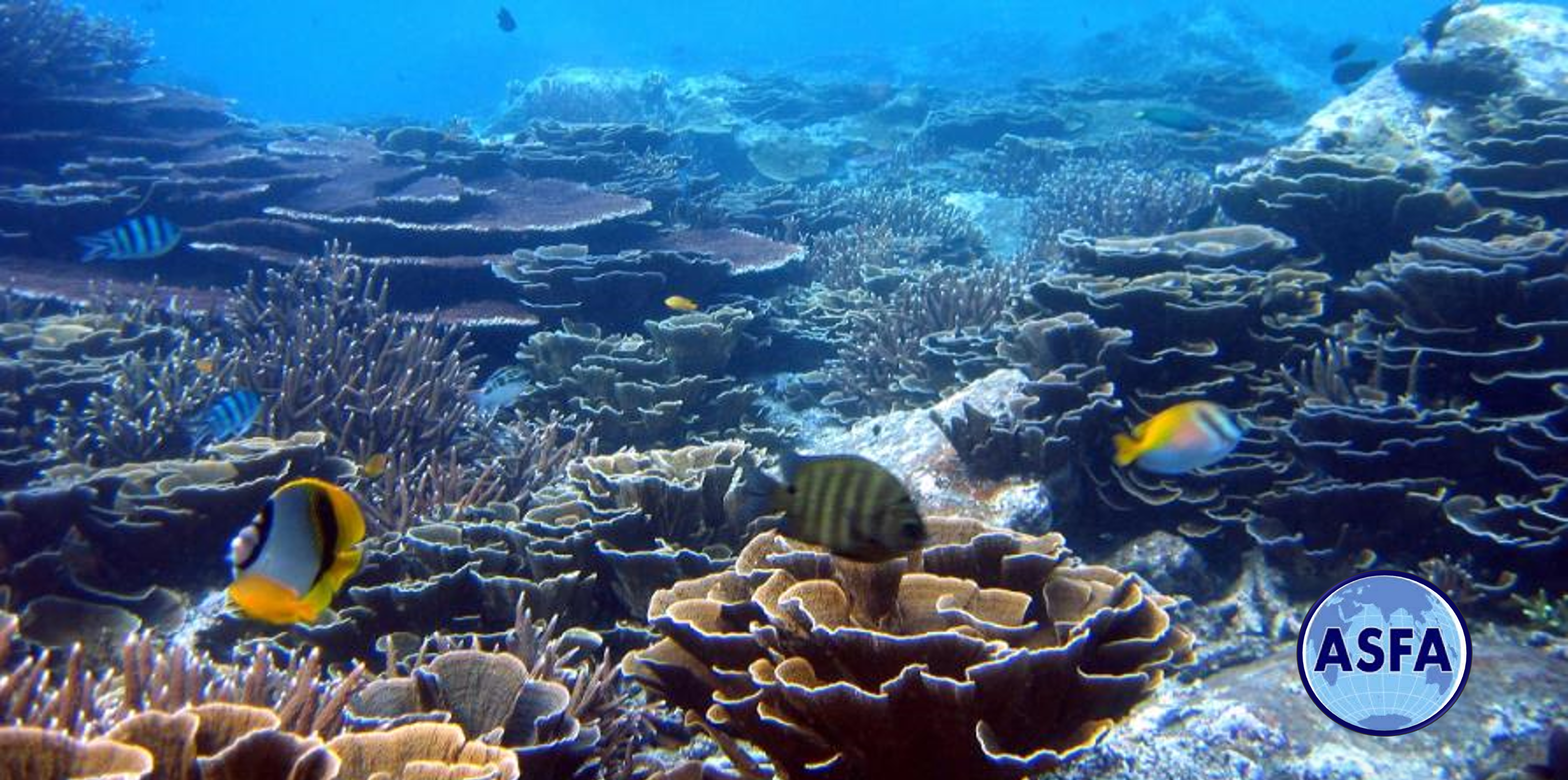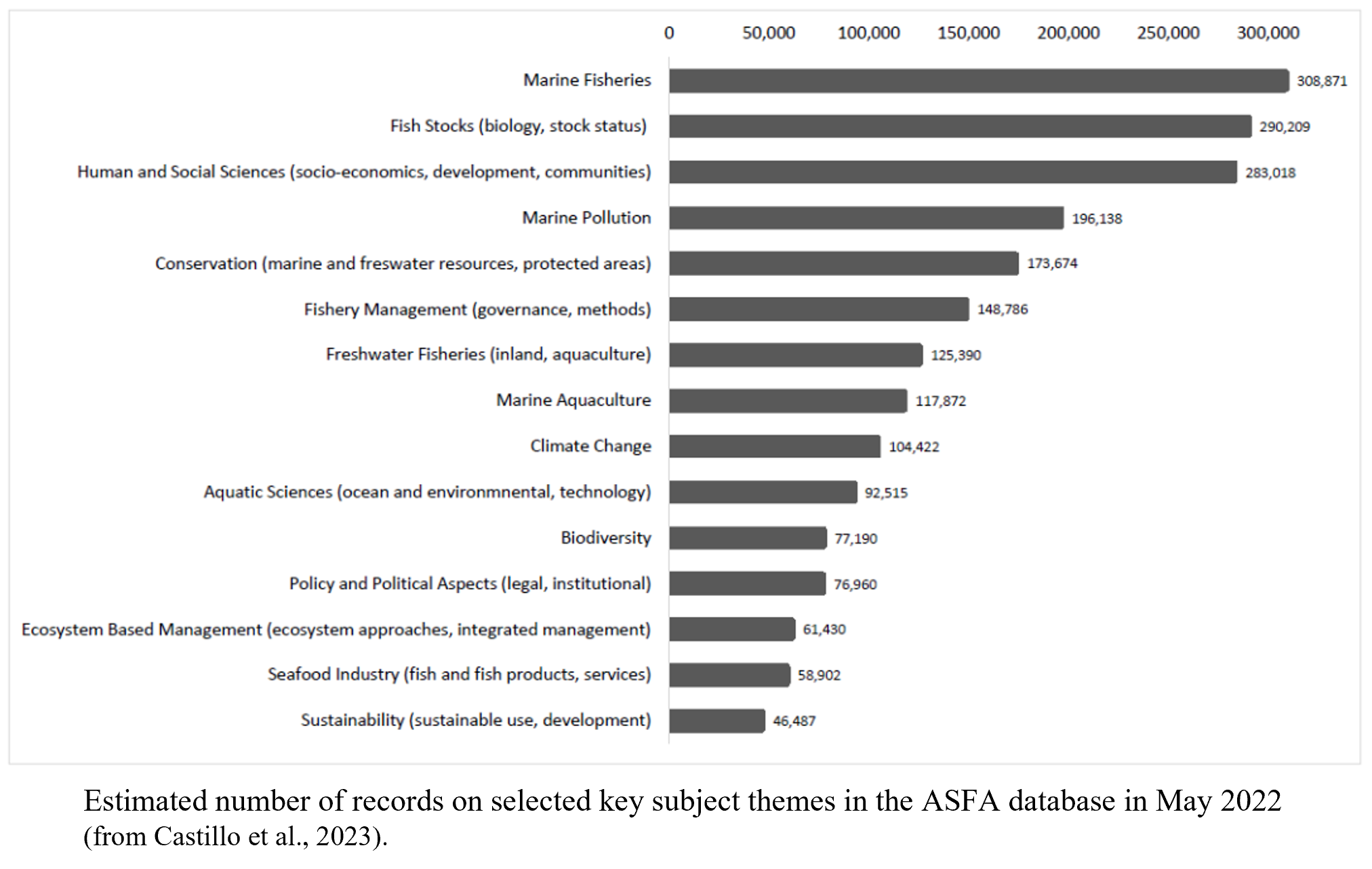Biodiversity loss, unrestrained climate change, deteriorating ocean conditions, growing food insecurity, and human population explosion are all headline topics today. The recently concluded COP 27 meeting on climate change in Sharm el-Sheikh, Egypt and the COP 15 Montreal Summit on biodiversity, currently in progress, have focused global attention on serious environmental, social, and political issues facing every country. Decision makers at all levels, from individuals all the way to international bodies, need to step up to identify and apply solutions to address these issues. Solutions may already exist in the vast and growing quantity of information generated by researchers, practitioners, and governmental, intergovernmental, and non-governmental organizations. However, tapping into this large pool of information is far from a trivial task due to many compounding factors, including a myriad of languages, varying levels of understanding of research and knowledge systems, misinformation, trust, and availability and access. In addition, the information landscape has been transformed over recent decades by the rapid evolution of information technologies, which have markedly increased the volume of available information and contributed to information overload for everyone. Increasingly, calls for “more, better and more systematic evidence” syntheses are being voiced as one method to inform and underpin efforts to mitigate or resolve environmental and societal challenges.
In this context, for over 50 years since its founding in 1971 the Aquatic Sciences and Fisheries Abstracts (ASFA) of the Food and Agriculture Organization of the United Nations (FAO) has provided extensive coverage of the world’s aquatic sciences, fisheries, and aquaculture research and practice giving particular attention to grey literature. Now numbering over four million records this database is a primary resource for researchers, practitioners, and decision makers on many subjects that are encompassed by the global issues noted above.
Currently, the ongoing development of the ASFA database benefits from the collaboration of four UN co-sponsoring partners, a large suite of international and national partners, numerous institutions participating as ASFA associates, and ProQuest, ASFA’s commercial partner.
ASFA’s attention to documenting grey literature, i.e., publications not produced by commercial publishers, is notable because this literature is often the first form of communication of research within government departments and fulfills a central role in most policy making settings (MacDonald, et al., 2016; MacDonald & Soomai, 2019). Moreover, locating grey literature can be challenging as it is widely dispersed and often not readily or comprehensively identified by search engines such as Google and Google Scholar. In recent surveys, users of ASFA emphasized the importance of grey literature as a significant asset of the database.
As a global information resource that supports the UN Sustainable Development Goals, the ASFA database must remain current both in content and technical infrastructure to meet changing information seeking behaviour and information needs. Our new open access paper in Ocean & Coastal Management reports on substantial steps taken to address both aspects. These steps were informed by collaborative research completed by the FAO ASFA Secretariat and the Environmental Information: Use and Influence research group. For example, the launch of OpenASFA has extended the ability of contributing institutions to update the database and the new freely searchable platform has enhanced global access to information about aquatic sciences, fisheries, and aquaculture research and practice.
Over the duration of the COVID19 pandemic the importance and challenges of practising evidence-informed decision-making and public policy development has received widespread attention. This attention has underscored that awareness of and access to credible, relevant, and legitimate information is imperative for effective, workable decisions. Through its extensive global network and coverage, ASFA highlights a large body of information to support advances in ocean and coastal management sciences and decisions about fisheries and marine ecosystem management. Ultimately, this resource fosters achievement of the UN Sustainable Development Goals and aids in development of efforts to mitigate and resolve critical global concerns.
References
Castillo, D. J., Vicary, T., Kalentsits, M., Soomai, S. S., & MacDonald, B. H. (2023). Ensuring equitable access to ocean and coastal information to advance knowledge and inform decision-making: The global Aquatic Sciences and Fisheries Abstracts. Ocean & Coastal Management, 231, 106399. https://doi.org/10.1016/j.ocecoaman.2022.106399
Abstract: While the oceans are vitally important for human life and the global economy, they have been under extraordinary pressure in recent decades due to human interactions and climate change. Launched in 1971, the Aquatic Sciences and Fisheries Abstracts (ASFA) database of over four million records serves as an invaluable information source about the oceans and other aquatic environments for use in research and decision-making, particularly due to its inclusion of both primary and grey literature. Since information production and use practices are rapidly changing, an assessment of use of the database and information needs of stakeholders was conducted, guided by the following questions: 1) What do individuals (researchers, practitioners, students, and decision makers) seeking aquatic sciences and fisheries information expect the global ASFA database will provide? 2) Have evolving information production practices and delivery technologies affected expectations of users of a database like ASFA? and 3) What action should the ASFA Secretariat take to ensure the development of the database continues to fulfil its mandate as a highly relevant and informative resource for all types of users worldwide? By means of surveys, interviews, and analysis of longitudinal usage data, users’ views of ASFA’s strengths, weaknesses, and potentially beneficial enhancements were identified. Based on the results of the use assessment, the ASFA Secretariat has implemented several substantial changes, including creating an open information platform containing grey literature, as well as restructuring its international affiliate partnership arrangement to facilitate involvement of new members in ongoing additions to the database. These changes, designed to make the information more easily found, accessible, and interoperable, will enable aquatic and fisheries scientists, managers, students, and decision makers to use relevant primary and grey literature from around the world and assist with ocean and coastal research efforts, mitigation of the effects of climate change, and reaching global sustainability goals.
MacDonald, B. H., Soomai, S. S., De Santo, E. M., & Wells, P. G. (Eds.). (2016). Science, information, and policy development for effective coastal and ocean management. Boca Raton, FL: CRC Press (Taylor & Francis).
MacDonald, B. H., & Soomai, S. S. (2019). Environmental research and knowledge production within governmental organizations. In L. Börjesson & I. Huvila (Eds.), Research outside the academy (pp. 21–50). Palgrave Macmillan / Springer International Publishing.
Authors: Bertrum H. MacDonald, Tamsin Vicary, Maria Kalentsits, Diana J. Castillo, and Suzuette S. Soomai
Image credit: Food and Agriculture Organization of the United Nations. ASFA Magazine, Issue # 7, May 2022

